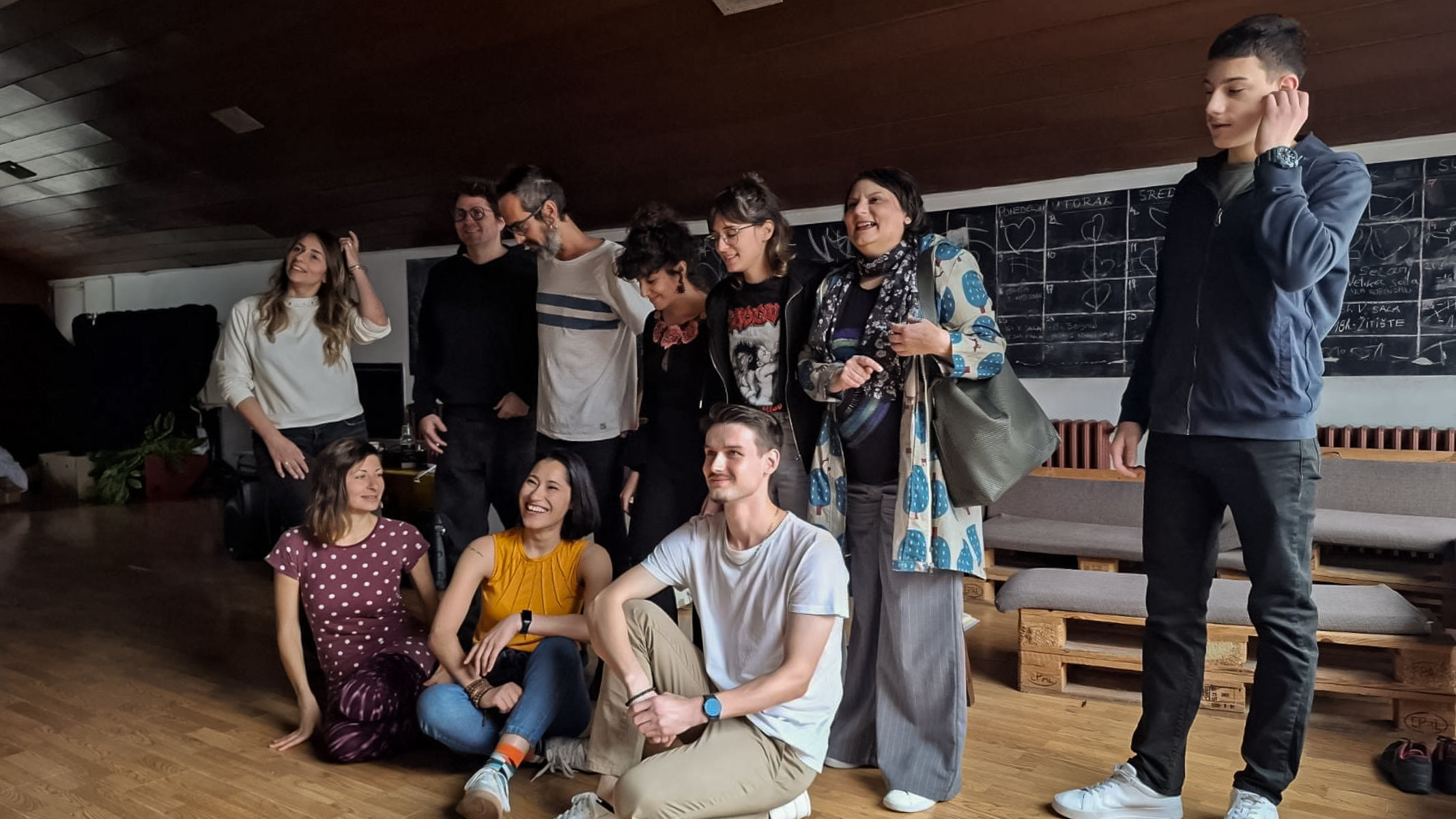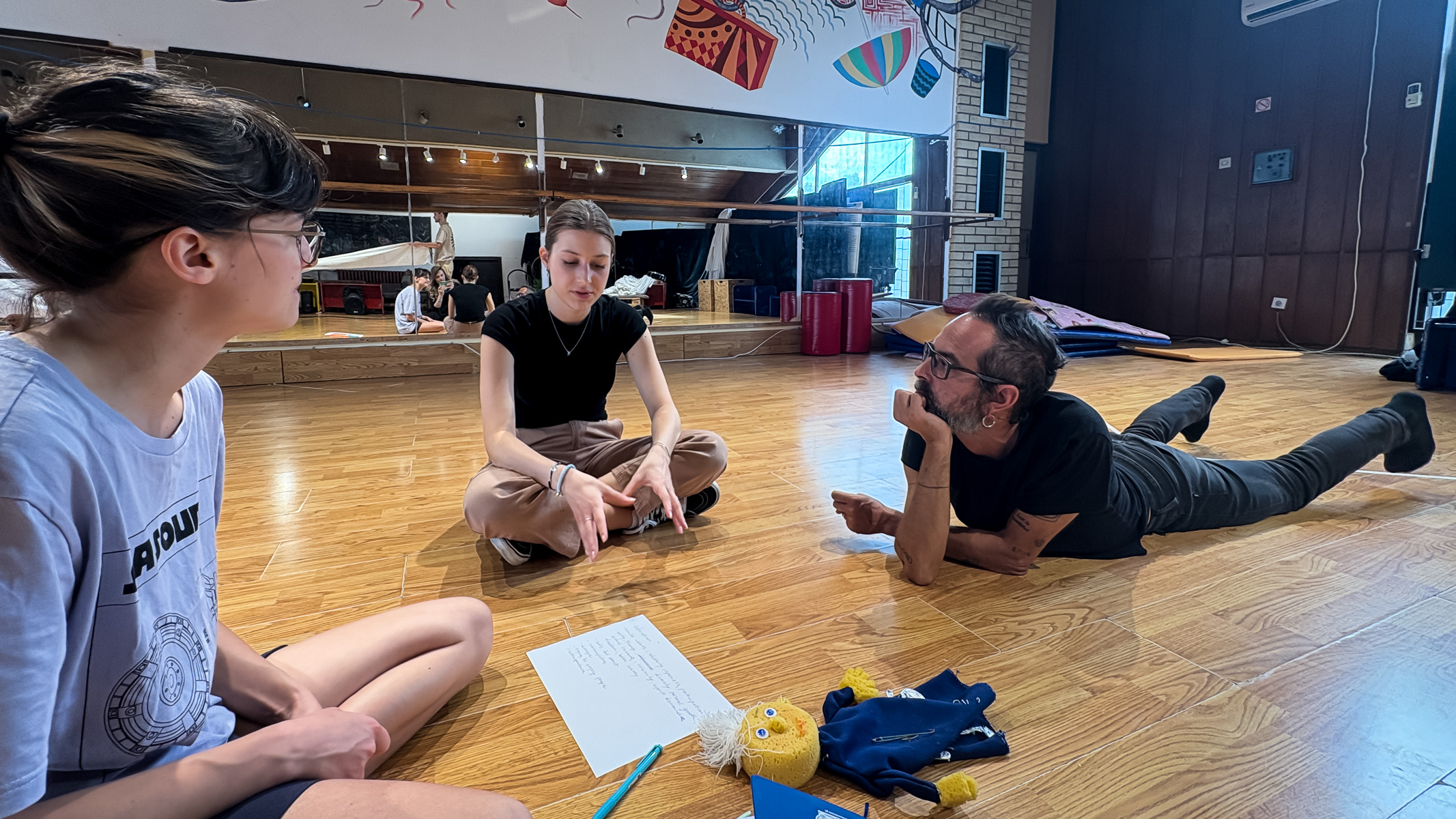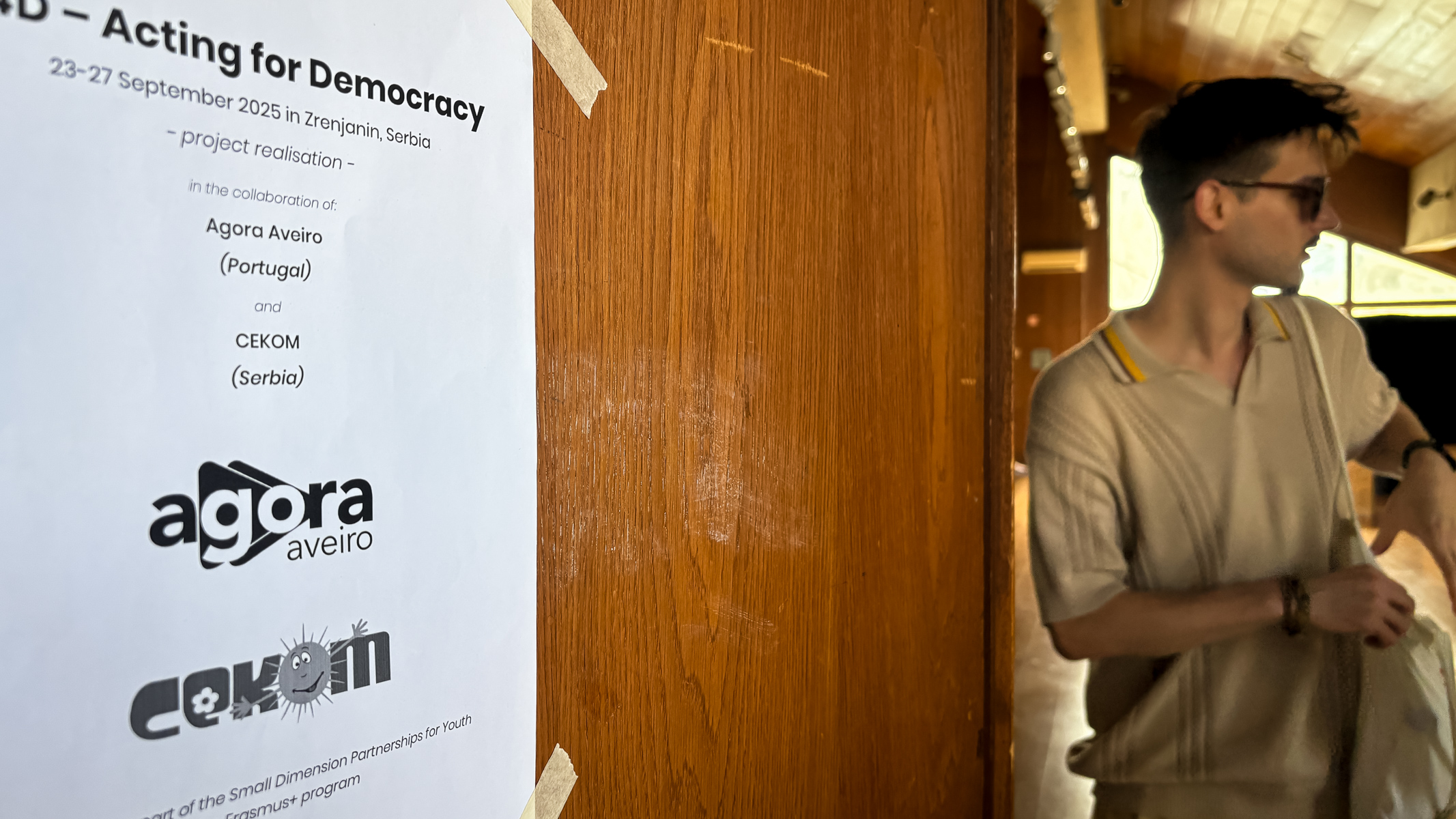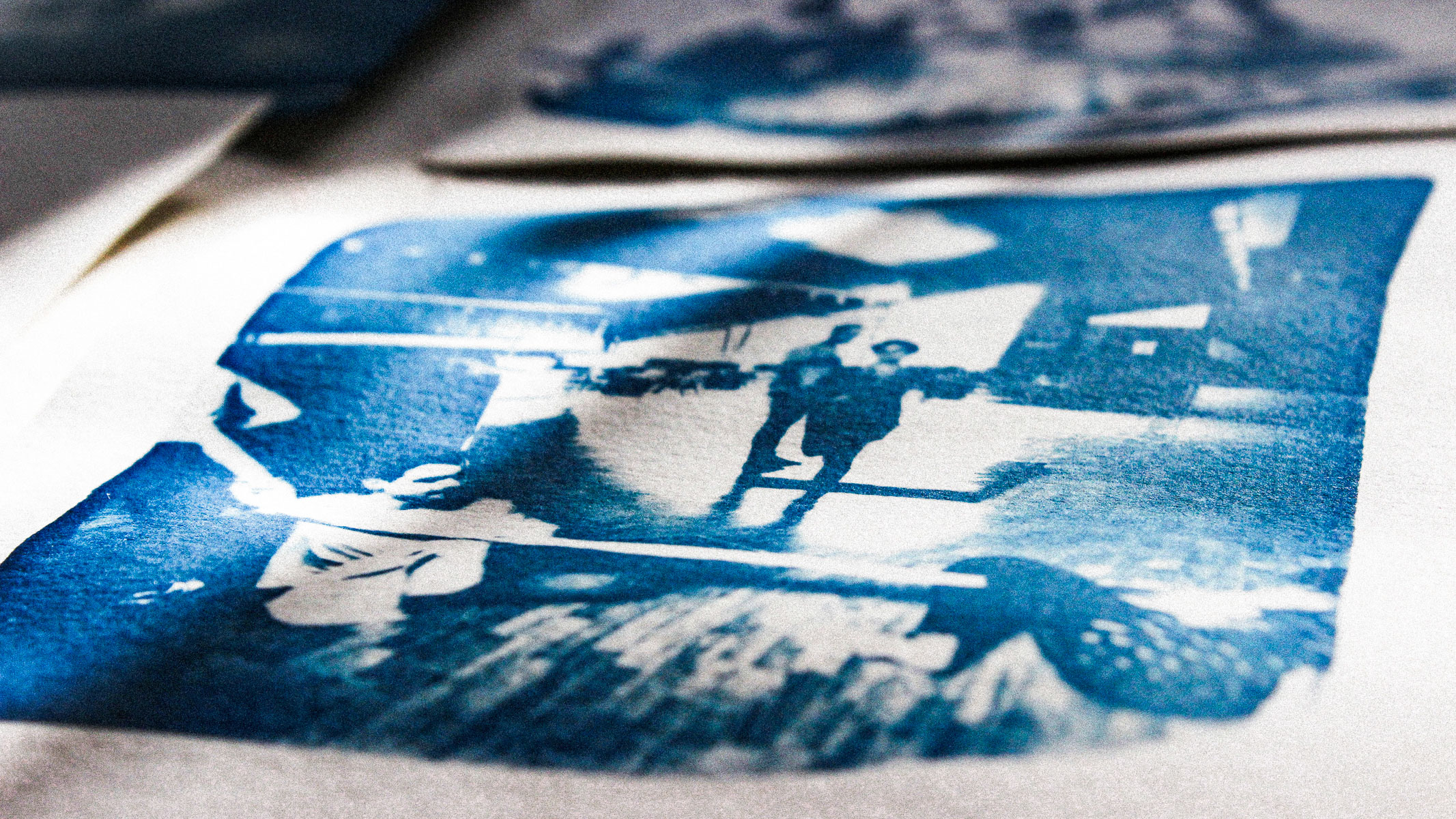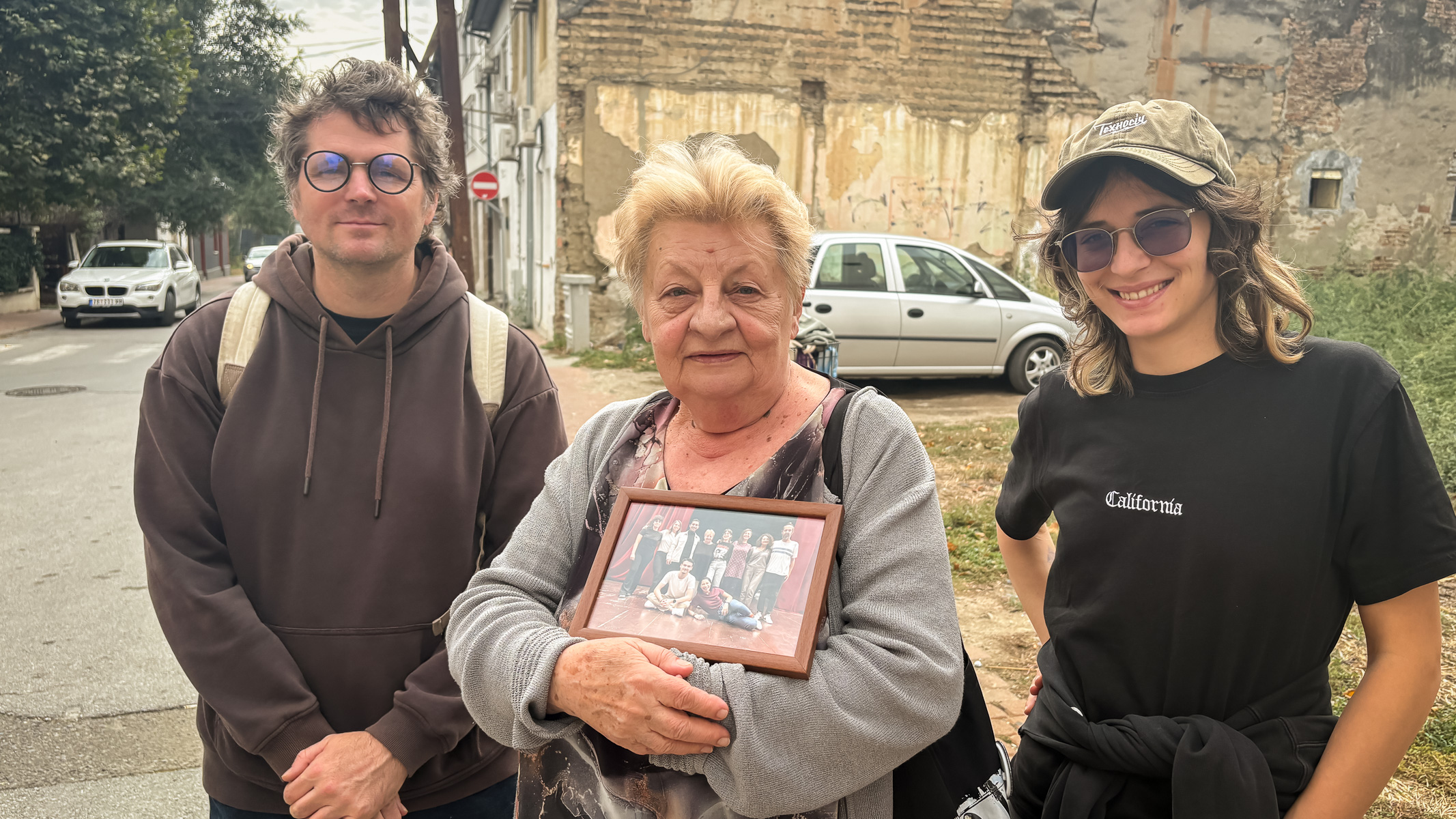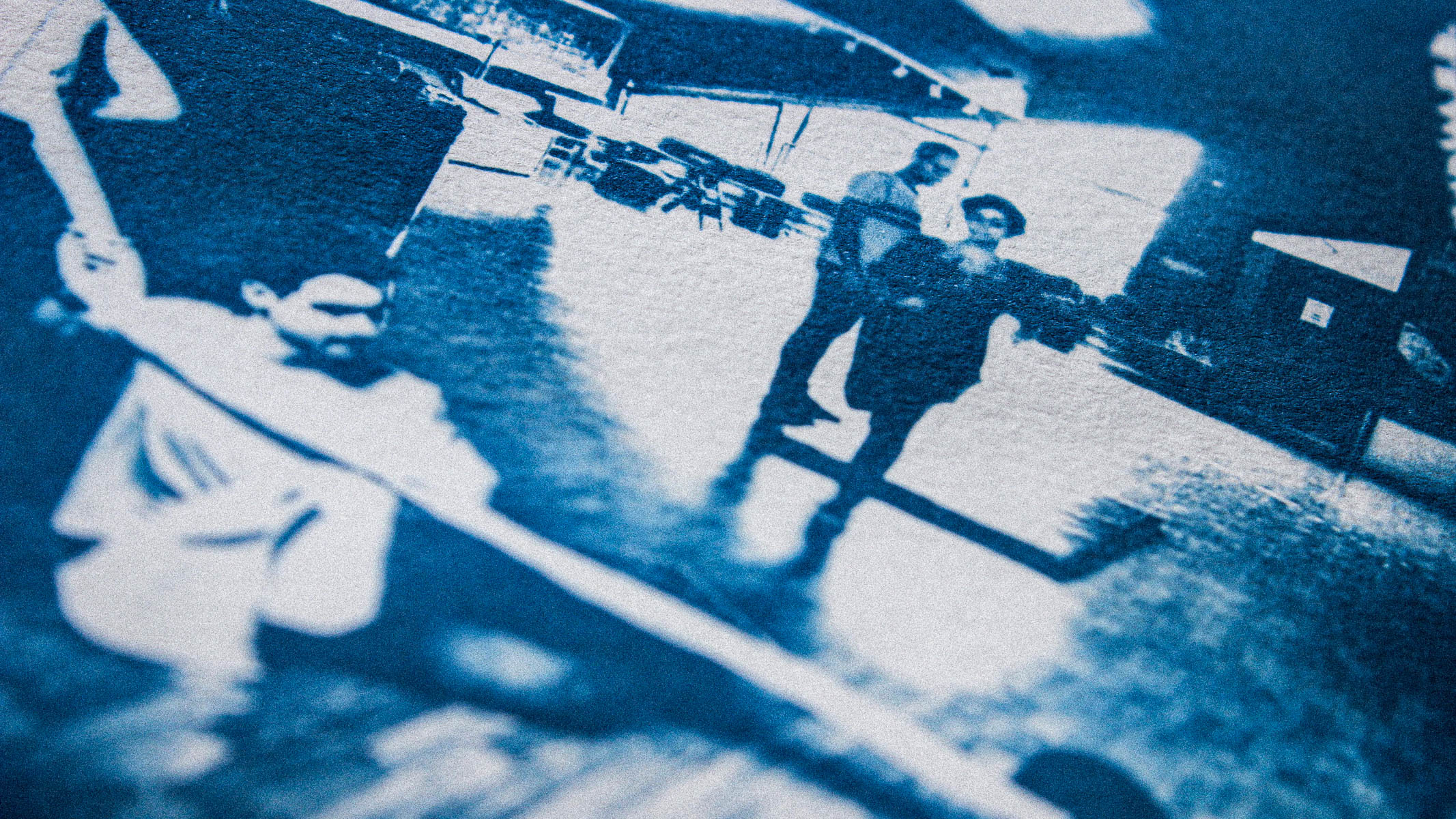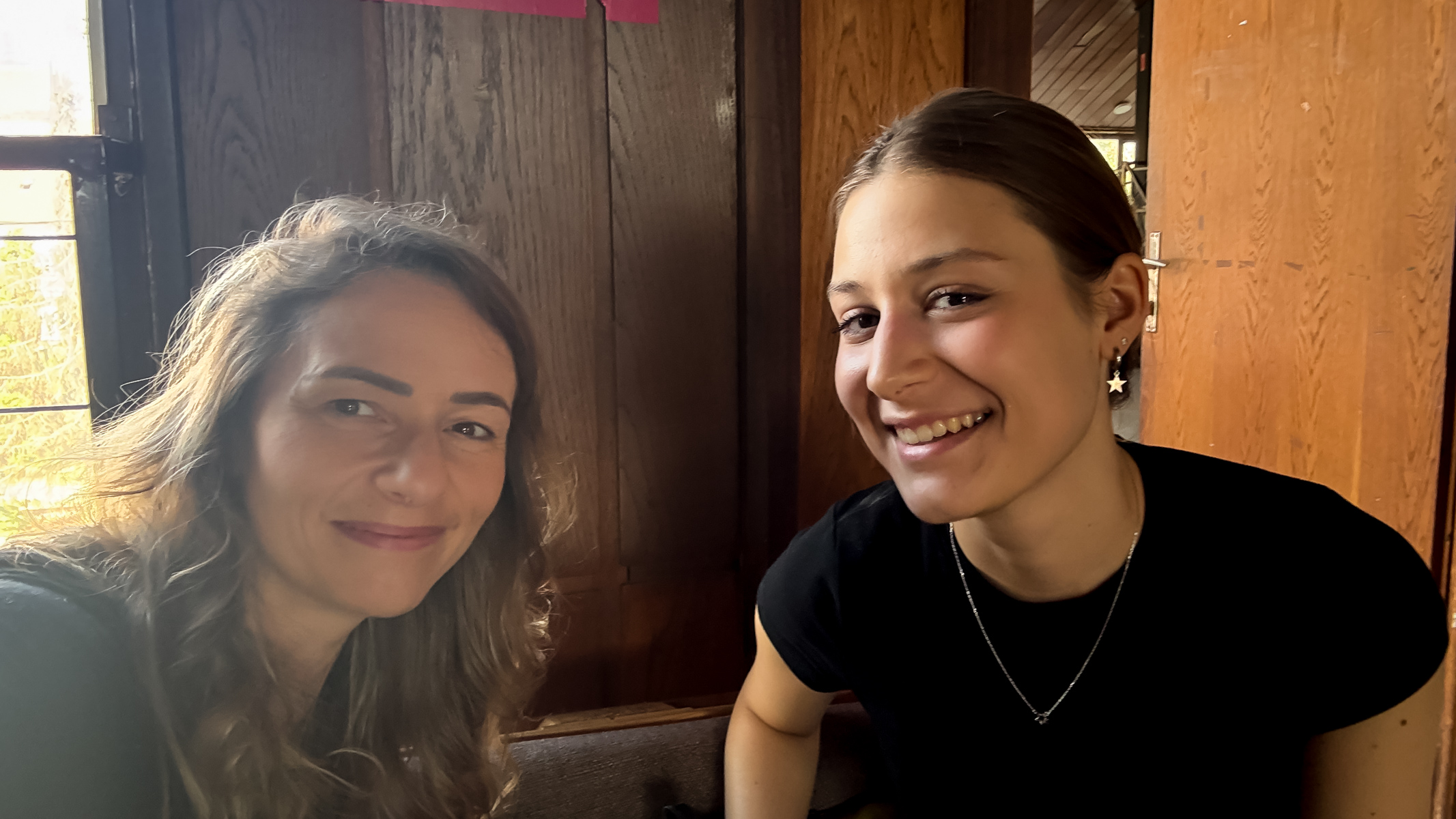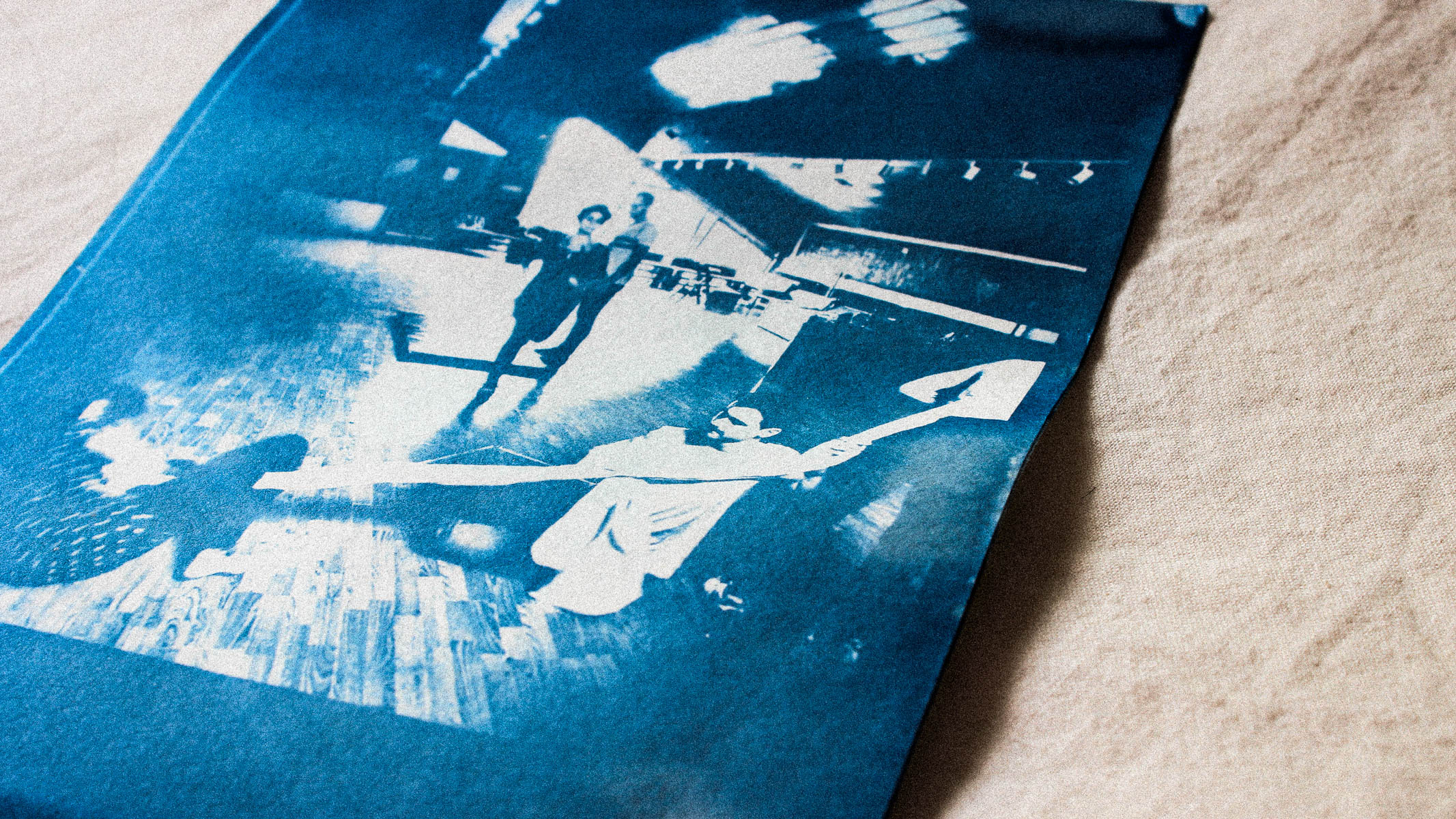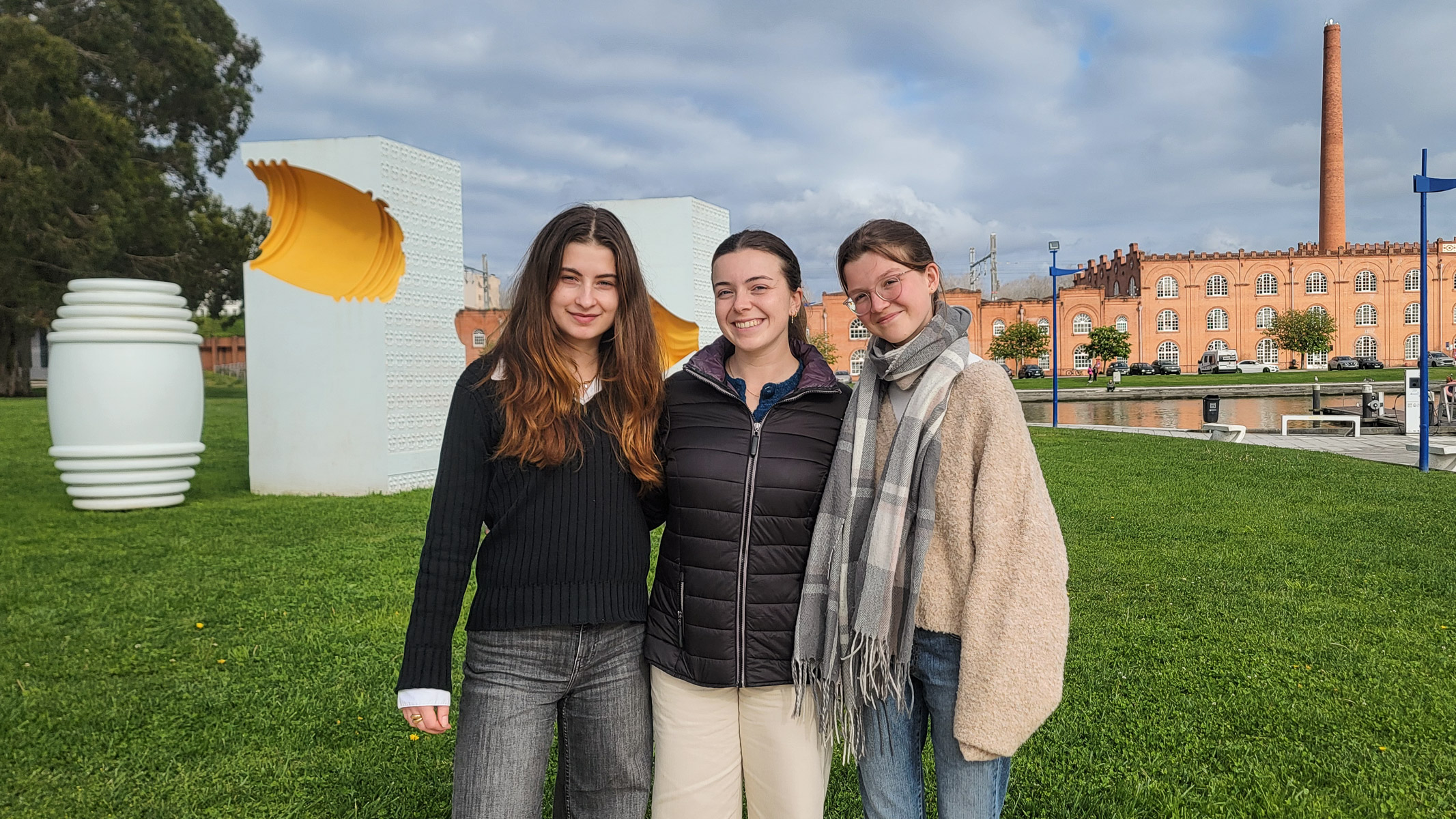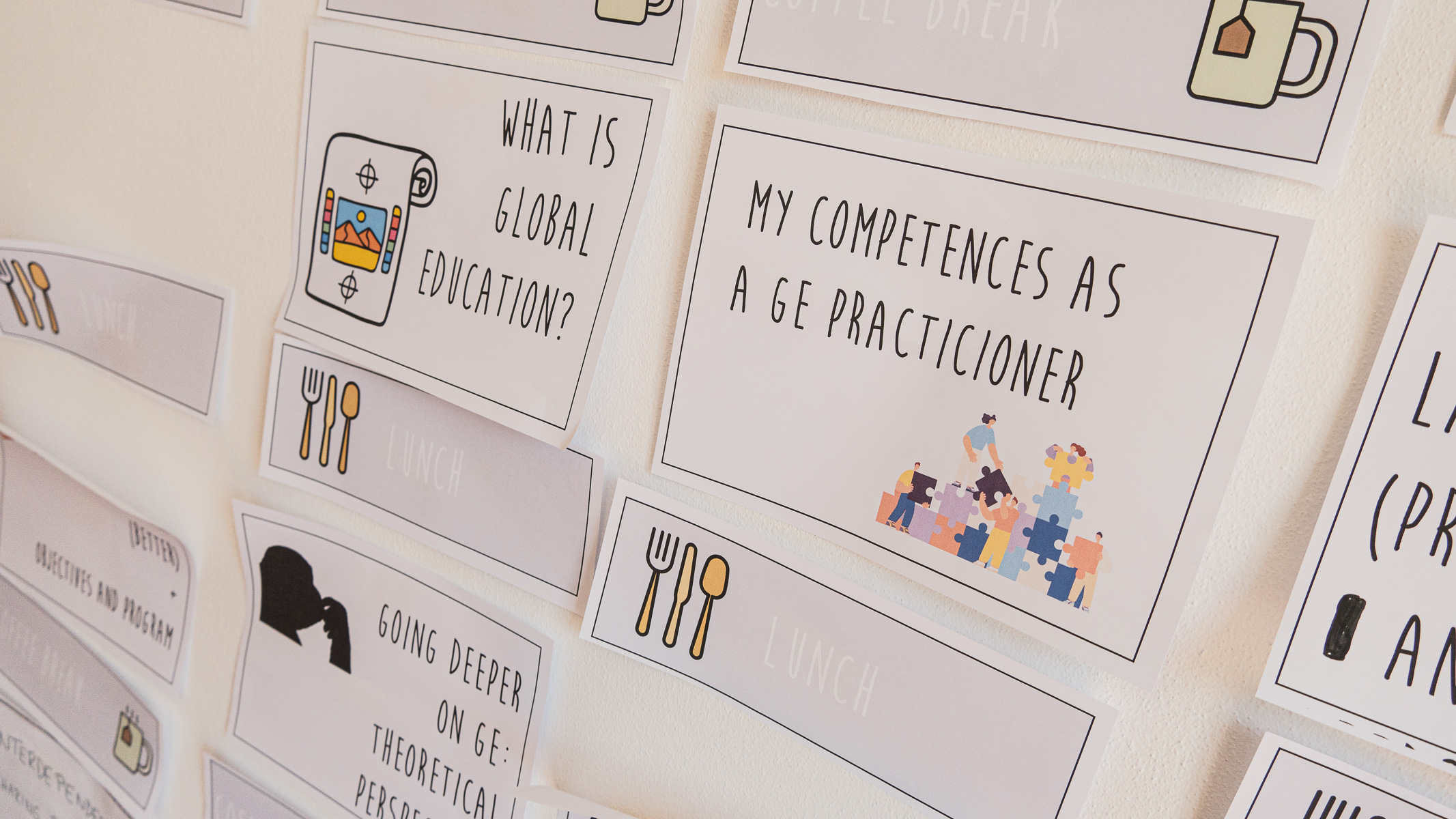Theatre for Social Change - A4D in Zrenjanin
The “Acting 4 Democracy" project, organized by Agora Aveiro in partnership with the Serbian organization, CEKOM, brought the activist experiences of a group of local volunteers to the city of Zrenjanin
Estimated reading time: 3 minutes and 41 seconds
Some ideas are only born from confronting the strange. And gestures only gain meaning after we see other bodies performing them. We also realized that observing attentively is already a form of participation, and that understanding the rhythm of the other demands, first and foremost, a suspension of our own. And it is this way, primarily this way, that we also begin to better write the narrative of our own cities.
Our Erasmus+ project, A4D: Acting for Democracy organized in partnership with the CEKOM youth theatre non profit organization (founded by Smiljana Tucakov in 2000), brought the activist experiences of a group of local volunteers to the city of Zrenjanin, Serbia. During an intensive week, participants explored the language of theatre as an agent of social transformation.
The project partners, aiming to empower young people to take an active role in building the future of democracies and cities, were an example of resilience. This was shown through sharing the "artivism" work they have built over the years, with different generations meeting on a common stage: their inner self or their city. The Portuguese team had the opportunity to watch a play at the Cultural Center of Zrenjanin and dialogue with the playwright and writer Meti Kamberi about his life experience through his writing. There was also space for an in-depth conversation with the young members of the CEKOM organization, who shared their experiences and the urgent issues they want to see discussed on stage. The central themes were the feeling of being voiceless, the conflict and distance from older generations, and the pressure of an uncertain future guided by individual choices that will shape the collective.
As explained by João Henriques, a participant from Portugal:
Being in Zrenjanin also meant getting to know the social, political, and cultural reality of that part of Europe more deeply. Walking the streets, hearing the stories, understanding the challenges and hopes, meeting the people—all of this allowed us to realize that some questions only arise when we are away from home. And that, sometimes, to understand what to do in our own place, we first need to inhabit a place that is not ours,
As a result of the work carried out during the week, which was divided between collective exercises in body expression, movement, voice, and group discussion moments, a performance was presented to the Zrenjanin community. The theme of migration proved to unite the two realities due to its centrality in building a sense of community, and it was explored in its dimensions of oppression, resistance, and freedom during the performative moment.
The impact of this work on the group was profound, as described by participant and young actor Aleksa Jovcic:
For any artist, venturing into the unknown is the core of refining one’s soul, and this project was exactly that. The exchange of cultures, ideas, perspectives, and the relentless search for ways to implement activism into our work is what makes theatre function since its inception. Theatre demands that we question, critique, and, sometimes, that we also be the solution. In Zrenjanin, during the training, I met wonderful people who use their skills through art. I was inspired and now, enriched, I continue my work one step happier.
This training course was another stage of the “Acting 4 Democracy” project, where local volunteers had the opportunity to be immersed in the reality and imaginary world of another place and community, which also became their own. Water bodies with neglected banks, the confluence of rivers, ancient theatres where we can see the interior of the plays, lime green, brick orange, saints materialized in worn stone, a tuning fork with aerial roots, a rose that is hard inside and soft to the touch (unlike smoki), abandoned dogs, galleries that may close, artists searching for space, voiceless people, new spaces and desolate or inhospitable places, folk and trance music, escapism, resistance, protest, subcultures, culture, architecture and education, unity, transformation of borders, sub-cities, submerged ideas, on the margins: everything contributes to the construction of a new sense of community.

Agora Aveiro
